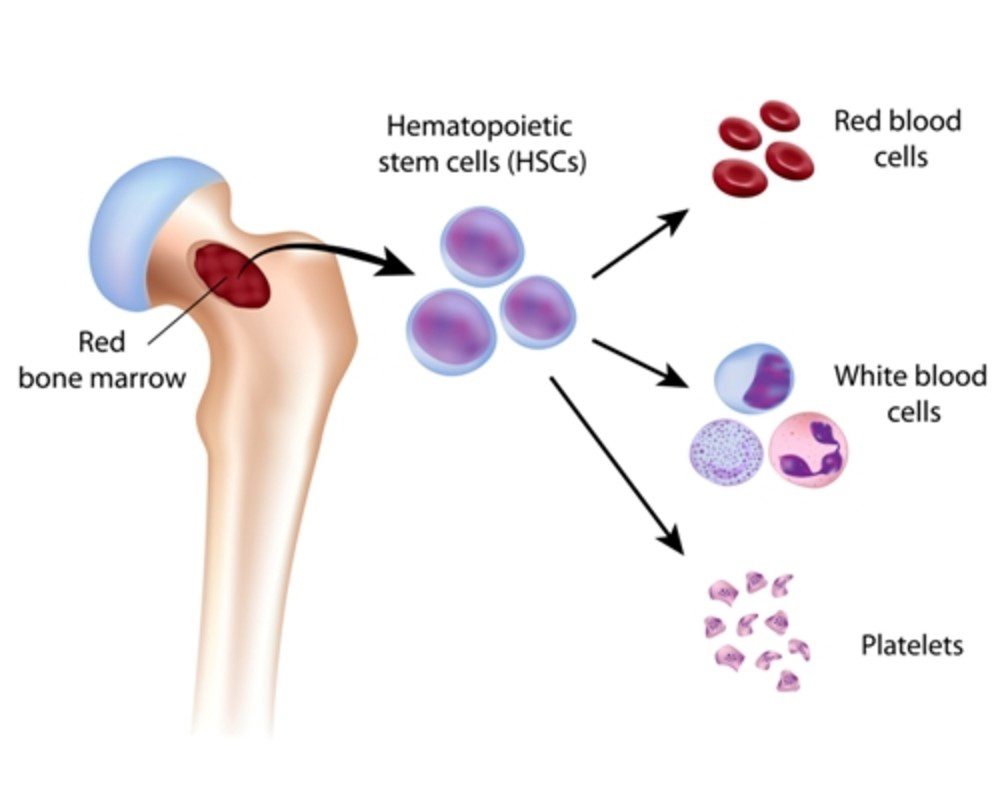03 Feb 2026
Rhinoplasty Revision Surgery in Mohali: Cost When Your First Nose Job Fails


Dr. Jatin Sarin
22 Jun 2025
Call +91 80788 80788 to request an appointment.
Bone marrow is an essential component of the human body, responsible for the production of blood cells and various other critical functions. Located in the central cavities of the bones, it contains hematopoietic stem cells that differentiate into various types of blood cells, including red blood cells, white blood cells, and platelets. Understanding bone marrow functions is vital, especially for patients undergoing treatments or transplants, as it plays a crucial role in our overall health and vitality.
Given the significance of bone marrow in blood production and immune function, any abnormalities can lead to serious health conditions. At Livasa Mohali, we emphasize understanding these functions to provide better patient care and management in hematology and bone marrow treatments.
Bone marrow is a soft, gelatinous tissue found within the long bones of the body and is primarily responsible for producing new blood cells through a process known as hematopoiesis. Bone marrow can be divided into two main types: red bone marrow and yellow bone marrow.
The healthy functioning of bone marrow is vital for maintaining an adequate supply of blood cells. Disruptions in this process can lead to various disorders, including anemia, leukopenia, thrombocytopenia, and more severe conditions like leukemia and aplastic anemia.
The primary role of bone marrow is to facilitate blood production. This process involves several key components:
The balance and production rate of these cells are essential for maintaining a robust immune system and overall health. Conditions affecting bone marrow can severely impact blood cell production, leading to various complications.
Bone marrow disorders can disrupt blood production and lead to numerous health complications. Some of the common conditions associated with bone marrow dysfunction include:
Early diagnosis and treatment are crucial for effective management of bone marrow-related disorders. At Livasa Mohali, our specialized hematology team employs cutting-edge diagnostics and treatment plans tailored to each patient's needs.
Bone marrow produces blood cells through a process called hematopoiesis, which involves the differentiation of hematopoietic stem cells into various blood cell types. This process is regulated by several hormones and growth factors, including erythropoietin, which stimulates red blood cell production.
The hematopoietic stem cells undergo a series of stages to differentiate into mature blood cells:
Understanding this process is essential, particularly for patients considering bone marrow transplants or treatments for blood disorders. It provides insights into how body responds to various treatments and how to enhance recovery.
A bone marrow transplant (BMT) is a medical procedure used to replace damaged or diseased bone marrow with healthy bone marrow stem cells. This procedure can be particularly beneficial for patients with blood disorders, such as leukemia, lymphoma, or severe aplastic anemia.
There are two main types of bone marrow transplants:
| Type of Transplant | Description | Donor Source |
|---|---|---|
| Autologous Transplant | Uses the patient's own stem cells, harvested prior to treatment. | Patient |
| Allogeneic Transplant | Uses stem cells from a compatible donor. | Related or unrelated donor |
Each type of transplant has its own advantages and risks. At Livasa Mohali, our expert hematology specialists guide patients through the entire process, providing support and care tailored to individual needs.
Recovery after a bone marrow transplant is a delicate process that requires continuous monitoring and care. Following the procedure, patients are usually hospitalized for several weeks to monitor recovery and prevent complications.
Post-transplant care involves:
The care team at Livasa Mohali works closely with patients to provide education and support throughout the recovery journey, ensuring the best outcomes.
Understanding the functions of bone marrow is critical for recognizing its role in health and disease. Adequate blood production is essential for sustaining life, and any disruptions can lead to severe health consequences. Our dedicated team at Livasa Mohali is committed to providing comprehensive care and support for those facing challenges related to bone marrow health, including diagnosis and treatment options.
Knowledge empowers patients to take charge of their health. By understanding bone marrow functions and their importance, individuals can make informed decisions regarding their medical care, leading to better health outcomes.
For more information on bone marrow health and treatment options, book an appointment at Livasa Mohali or call us at +91 80788 80788 today.
Rhinoplasty Revision Surgery in Mohali: Cost When Your First Nose Job Fails
Plastic Surgery After Massive Weight Loss: Body Contouring Packages in Mohali
ENT + Cosmetic in Mohali: Septoplasty for Breathing with Cosmetic Rhinoplasty Offers
Livasa Healthcare Group Corporate Office,Phase-8, Industrial Area, Sector 73, Sahibzada Ajit Singh Nagar, Punjab 160071
| Mohali | +91-99888 23456 |
| Amritsar | +91-99887 49494 |
| Hoshiarpur | +91-99883 35353 |
| Nawanshahr | +91-75081 82337 |
| Khanna | +91-98888 05394 |